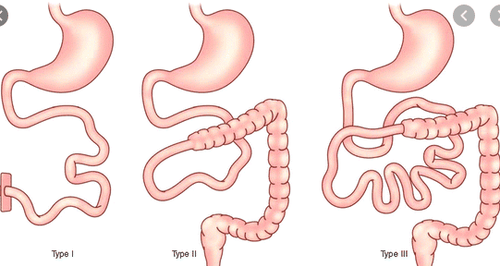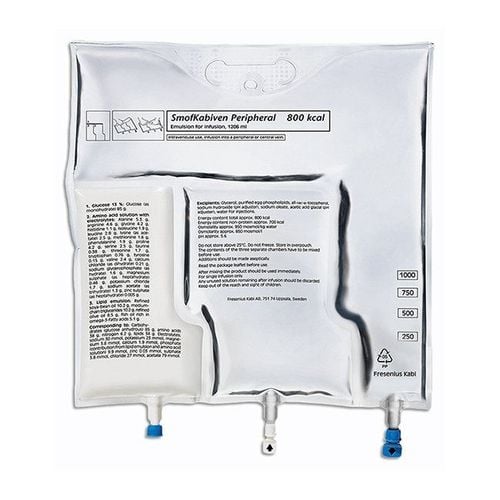This is an automatically translated article.
Omega-3 fatty acids are essential for maintaining optimal health. Nutritionists recommend that you eat fatty fish at least once every two weeks to provide the necessary amount of Omega-3. But if you don't eat fatty fish or other foods rich in Omega-3 regularly, you need to take an Omega-3 supplement.
1. Is it good to take Omega-3 every day?
Because Omega-3s play an important role in the maintenance of optimal health, it is necessary to supplement Omega-3 through the daily diet. If you find it difficult to get them through food, you should take an Omega-3 supplement such as fish oil. Supplementing with Omega-3 daily not only helps prevent diseases, but also helps in the treatment of a number of chronic diseases. Some of the benefits of Omega-3 can be mentioned include:
Support heart health: reduce cholesterol, triglycerides, maintain stable blood pressure and pulse, reduce the risk of death from arrhythmia. Helps treat some mental illnesses: because Omega-3s are so important in maintaining brain function, taking Omega-3s is not only good for treatment, but also beneficial in reducing the risk of heart disease. neuropsychiatric syndromes in high-risk individuals. Beneficial for weight loss: Omega-3 supplements, along with a proper diet and regular exercise are beneficial in weight loss. Good eye health: People who do not take Omega-3 regularly have a higher risk of eye diseases than those who take Omega-3 daily supplements.

Bổ sung Omega-3 hàng ngày giúp hạn chế nguy cơ mắc các bệnh về mắt
Reduce Inflammation: Inflammatory reactions in the body can contribute to a number of chronic diseases such as obesity, diabetes, depression or cardiovascular disease. Omega-3s help reduce inflammation thereby helping to prevent common diseases caused by the inflammatory process. Good for skin health: Omega-3 is very good for aging skin or exposed to a lot of sun. Good for pregnancy and child development: taking Omega-3 during pregnancy and lactation will benefit the health of both mother and baby. Reduce fatty liver: Taking Omega-3 is good for fatty liver disease, especially non-alcoholic fatty liver. Improve symptoms of depression: people with depression often have relatively low levels of Omega-3 in the body. Therefore, Omega-3 supplements help reduce or prevent early symptoms of depression. Improves Attention in Hyperactive Children: Omega-3 supplements may improve hyperactivity, inattention, impulsivity, and aggression in children. They are therefore beneficial in improving behavior and concentration in hyperactive children. Helps prevent symptoms of mental decline: Some studies have shown that omega-3 supplements can improve memory in the elderly. May improve asthma symptoms and allergy risk: Omega-3 supplements may reduce asthma symptoms, especially in early life. In addition, Omega-3 supplements such as fish oil tablets given to pregnant mothers may reduce the risk of allergies in infants. Improved bone health: People with higher blood levels of Omega-3 may have better bone mineral density.

Nồng độ Omega-3 trong máu cao giúp cải thiện sức khỏe xương hiệu quả
2. When is the best time to take fish oil?
You can take fish oil at any time of the day, as long as you feel that time period works best for you. The potential benefits of fish oil supplements are not immediate, but rather the benefits of long-term use. Studies show that taking fish oil for several weeks, months, or even years can increase blood levels of Omega-3 fatty acids.
However, timing supplementation may help prevent some of the side effects associated with Omega-3s. For example, acid reflux is one of the most common side effects associated with fish oil supplements.
You should split your fish oil into two smaller doses and take it morning and evening as a good strategy to help prevent acid reflux and indigestion.
3. Should fish oil be taken with meals?
You can take an Omega-3 supplement at any time, but it is important that you take it with a meal to maximize its absorption in the body.
In particular, if fish oils are consumed with foods that contain good fats, they can increase the biological effects of Omega-3 fatty acids and enhance their effectiveness.

Nên bổ sung dầu cá vào cùng bữa sáng để tối đa hóa sự hấp thu dưỡng chất vào cơ thể
Furthermore, taking Omega-3 supplements with food may reduce certain side effects associated with supplementation. For example, consuming fish oil just before a meal can reduce the risk of acid reflux, indigestion, and prevent other common side effects, such as diarrhea, belching, and nausea.
4. Should take Omega-3 supplements on time
For some people, taking an Omega-3 capsule in the morning with breakfast is the easiest way to make sure they get the recommended dose throughout the day. Meanwhile, others feel it's better for them to take fish oil with lunch or right before bed.
You can choose a time that is convenient for you, but it is important to pay attention to the reasonable use of Omega-3 by training yourself a habit of taking Omega-3 supplements on time to achieve the desired effect.
Customers can directly go to Vinmec Health system nationwide to visit or contact the hotline here for support.
Articles refer to the source: healthline.com













